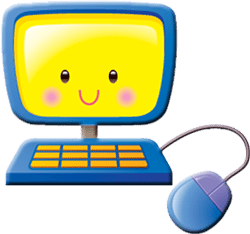Here to comment on NSPCC’s recent research revealing that children have seen pornographic content online is security expert David Emm, principal security researcher at Kaspersky Lab.
David Emm, principal security researcher, Kaspersky Lab:
Parents may feel that educating young children about online dangers is a minefield, however rather than feeling overwhelmed or unsure of how to tackle the issue, it may help to remember that the same dangers and advice apply when using the internet as they do in the real world.
We encourage parents to talk openly about it as soon as their children start interacting online – which may be younger than they think. This will ensure that parents and children stay one step ahead of online nasties, rather than become vulnerable to content online due to a lack of awareness.
Most good Internet security products now include a parental control module that lets you put a protective barrier around your children – reducing the risks they’re exposed to online. Smartphones and tablets typically include parental control filters too – so if you’re buying one for your children this year, be sure to investigate before you wrap it up and put it under the tree. But it’s also essential to underpin this by developing an online safety mindset from a young age. This means sharing what they do online, discussing the risks and explaining the measures you’ve put in place to protect them.
Here’s our list of top tips for keeping your children safe online.
- Talk to them about the potential dangers.
- Encourage them to talk to you about their online experience and, in particular, anything that makes them feel uncomfortable or threatened.
- Set clear ground-rules about what they can and can’t do online and explain why you have put them in place. You should review these as your child gets older.
- Use parental control software to establish the framework for what’s acceptable – how much time (and when) they can spend online, what content should be blocked, what types of activity should be blocked (chat rooms, forums, etc.). Parental control filters can be configured for different computer profiles, allowing you to customise the filters for different children.
- Protect the computer using Internet security software.
- Don’t forget their smartphone – these are sophisticated computers, not just phones. Most smartphones come with parental controls and security software providers may offer apps to filter out inappropriate content, senders of nuisance SMS messages, etc.
About Kaspersky Lab
Kaspersky Lab is the world’s largest privately held vendor of endpoint protection solutions. The company is ranked among the world’s top four vendors of security solutions for endpoint users*. Throughout its more than 17-year history Kaspersky Lab has remained an innovator in IT security and provides effective digital security solutions for large enterprises, SMBs and consumers. Kaspersky Lab, with its holding company registered in the United Kingdom, currently operates in almost 200 countries and territories across the globe, providing protection for over 300 million users worldwide. Learn more at www.kaspersky.com.
The opinions expressed in this post belongs to the individual contributors and do not necessarily reflect the views of Information Security Buzz.



